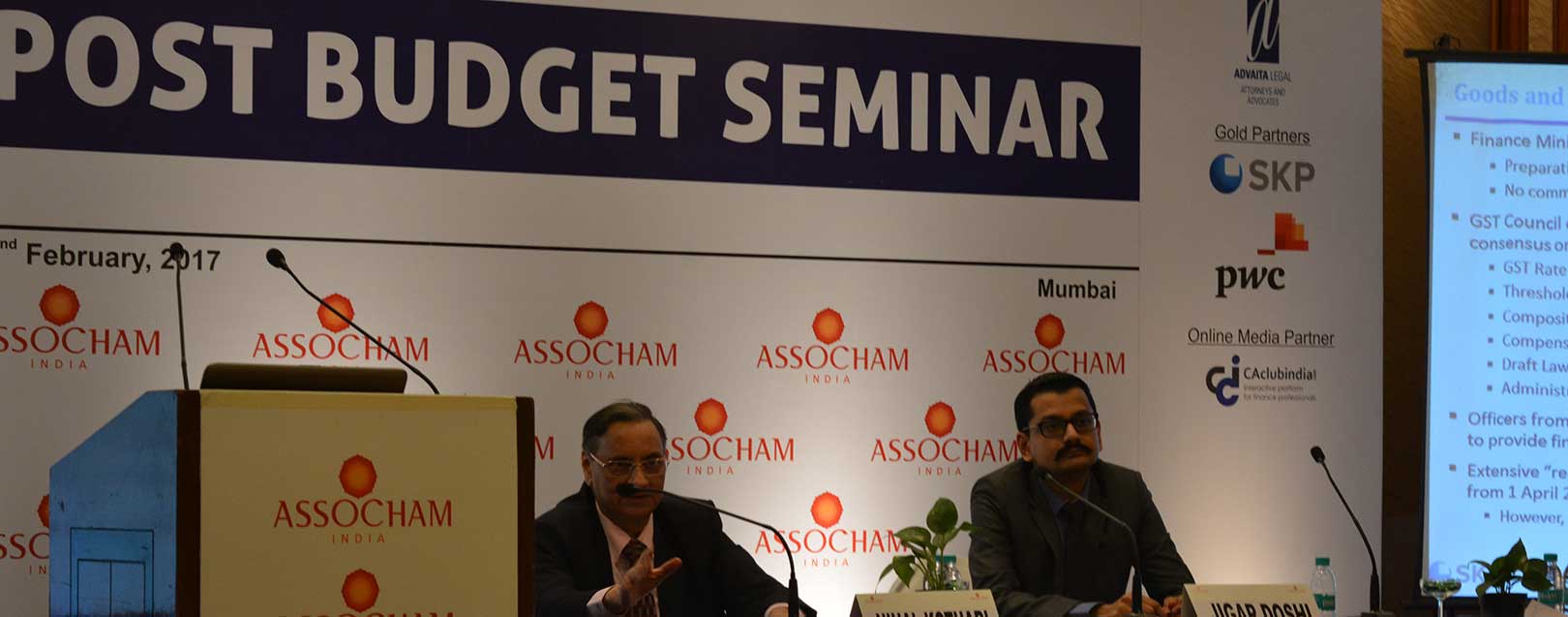
Sliver of hope for cashless and renewable energy in the Budget: Assocham
Sairaj Iyer
Nihal Kothari, the ace taxman and Executive Director at Khaitan and Co. gave an account of the budget’s fine print while deliberating at an Assocham’s post-budget analysis today at Mumbai. Kothari observes the budget as one that has some benefits for foreign trade players.
He began highlighting some of the key points in the budget. Speaking about export duties he said that a 50% export duty has been imposed on aluminium. Since India has rich bauxite reserves, it remains to be seen what impact the export duty could have in this sector “We have a large surplus of bauxite in the country and it needs a study to understand the impact.”
Secondly, the govt has doled out incentives in renewable energy, cashless transactions, and duty kicks in sectors such as textiles. The catalyst and raisins used in cast components of solar and wind energy have a reduction in duty structure. Parts going into the making of solar panel too will see a duty structure dip. This is obviously due to the international agreements that India has agreed in combating pollution in the country,” he explained.
“Excise and customs duty for printed circuit boards for mobile phones, micro-ATMs and cashless transaction devices have been exempted and reduced to 2% respectively. Duty on nylon filament yarns has been reduced from 5 to 2.5%. There has been a study on various industries and accordingly, the duty rates have been changed,” he said.
Unlike his peers from the corporate sector, he saw the budget as one that cut out the R&D cess component, which was operational since 1986. He added, “you can import more technology now. This is the first change in the negative list, this is a cosmetic change, there is no impact.”
Assocham’s full day session saw participation from leading tax-law firms such as Advaita Legal, SKP Consulting, Deloitte Haskins, and PriceWaterHouse Coopers. Samir Gandhi, Partner- Transfer Pricing at Deloitte Haskins expressed joy that the budget looked more futuristic than a 2017-18 one. “It would help India move towards globalisation at a time when the world including US and UK are adopting anti-globalization measures. Some TV channels asked me how much on a scale of 1-10 would I mark the budget, I believe that this is an all-round budget,” he shared.
The session cheered about FIPB abolition, transparency in political funding, as well as the measures to go cashless. The panel also stressed that this appears to be a complete budget, as it accommodated all the elements of government spending. “A budget need not explain tax components. And we don’t need to tinker with taxes on a y-o-y basis,” said Jigar Doshi, Partner at SKP Consulting.
There were varying thoughts on the completeness as some experts believed that it missed most of the crucial elements. “There was so much else that was not spoken about. The CFC warranted a mention, whether good or bad. In spite of representations to abolish ICDS, we are still continuing with it. Also, Gaar, there is no point of implementation that was being spoken in the budget. The stock markets reacted positively to the announcement on long-term capital gains on shares, but factors such as Patent Box regime, which was launched last year in India, we haven’t heard anything on its success rate. Also, when dispute resolution scheme can be opted for by paying tax, why can’t it be made a permanent feature?” argued Nikhil Rohera, Partner Direct Taxes at PwC.
Although the budget does look like a convincing one, tax experts believed that it should have involved some explanation and circulars on GST implementation (either by 1st July or 1st September), to ease market worries.





